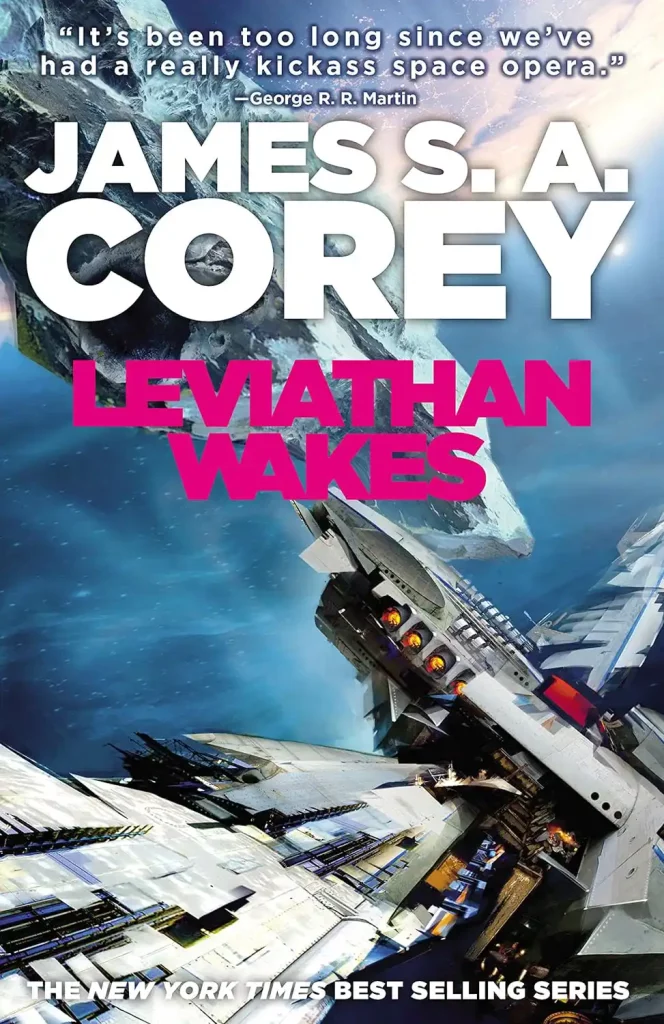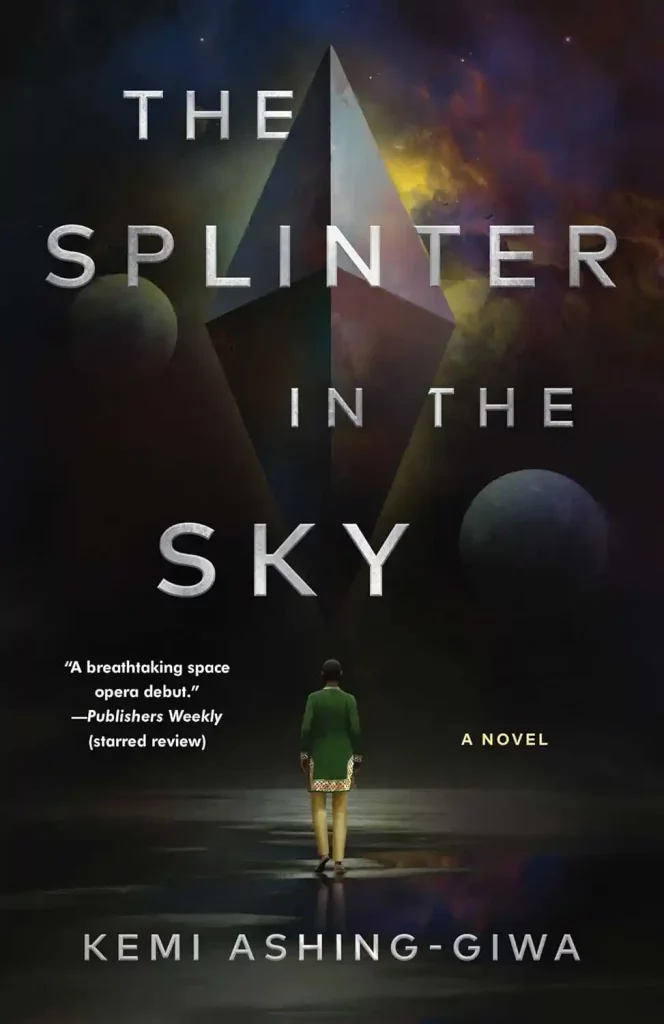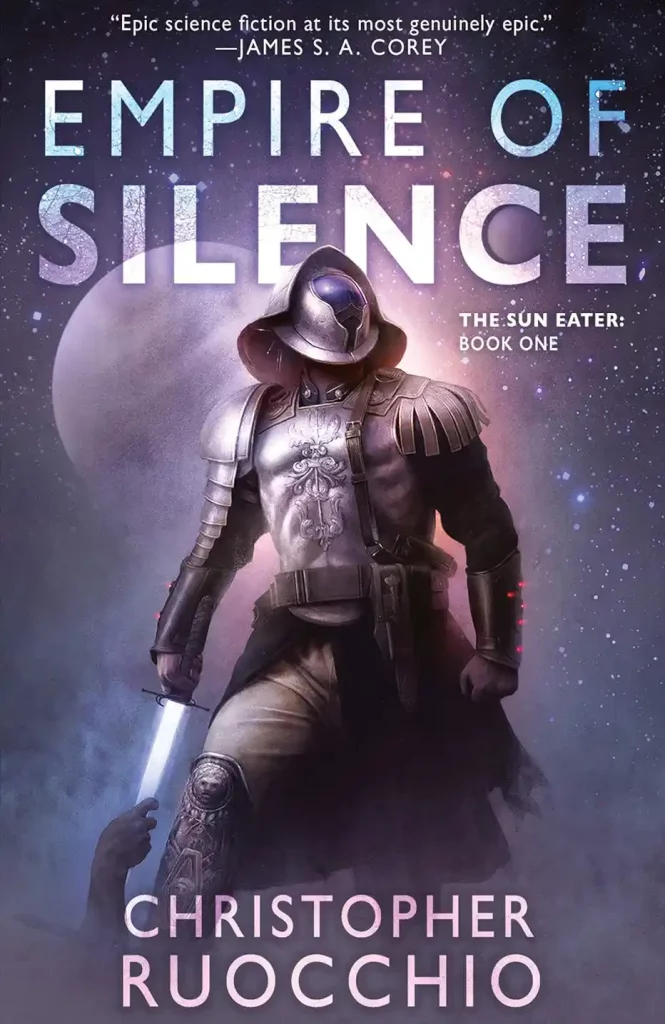What is the best thing to do whilst waiting for an upcoming book? Read other books of course. Re-exploring the vast tapestry of The Culture led me to consider this history of Space Opera. The famous cycle from Ian M. Banks is not so old we can call it history, but it is revealing of a transition phase in the Space Opera genre.
Do you want to read Space Opera, waiting feverishly for The Mercy of Gods to come out? We got you covered, but before reading those standing on the shoulders of giants, read our article dedicated to the best new Space Operas novels, it will be a smooth ride.
New Space Operas : What are we talking about?
As often, words can be deceitful. What is a New Space Opera? Should the “N” be even capitalised? Well, that depends, and it depends on your expectations. So before we provide you with the holy list of the best new operas you should read (winkwink Google) we have to give you some context.
New Space Opera or newly published Space Operas?
Believe it or not, New Space Opera, or NSO, is a thing. These stories are sometimes new, as in new smelling new, but sometimes they can be 30 or more years old.
The New Space Opera is, among specialists of the highest taste, a subgenre of Space Opera published after 1975. You see, before the mid-seventies, Space Opera was the squeaky clean offspring of the Golden Age of Science fiction.
Think The Star Fox by Poul Anderson, or… many other novels and short stories by Poul Anderson. I will say it just the once to avoid getting lynched, but think Star-Trek.
Yes Space Opera was a cleanish, kind of utopian genre, with a saturday’s 2am shot of black and white view of the world. The mid-seventies and eighties brought something more elaborate, more subtle and definitely not rigid, the New Space Opera.
That logical evolution of the Space Opera -we say logical because that same progression can also be witnessed in other SF genres- unveiled a whole new field of possibilities, not only dystopias, but more gritty, rough around the corners, imaginary futures. Ian Bank is a perfect example of the NSO, as are Neil Asher and Alastair Reynolds.
So by asking Google what the best new Space Operas are, you could have meant:
- What are the best novels in the New Space Opera genre?
- What are the best newly published Space Operas?
Since Google cannot (completely) read your mind (yet), we assume that you want the latter, a recent, fresh Space Opera novel or series to clench your thirst until The Captive’s War comes out.
How new should be a new Space Opera?
What is new? Good questions deserve good comparisons. Greg Egan would explain to you that “new” doesn’t exist because it ceases to be as soon as it “is”. Schrödinger (and Egan also) would tell you that “new” is never when it “is” but conceivable when we don’t know about it.
In other words, it depends. If we, absolutely not ancient people, think about Slipknot, we think “new” but for a youngster discovering metal music, Slipknot would be grandpa’s stuff.
So in order to provide you with something fresh, we will arbitrarily decide that our best new Space Operas cannot have been originally published more than 15 years ago. Yes, a 15 year old book is not exactly new, but the fear of including only YA books forces us to dig a bit deeper, after all, a list of the best new Space Operas must sieve out the chaff to keep only the wheat.
Also, we must take into account that the publishing process of a book is nowadays long, squeezing out a book a year is not an easy task, neither for the writer nor the publisher. Except, of course, for John Scalzi and Tor books, which have their own secret recipe.
Will you tell us what the best new Space Operas are already?
Before giving you the meat of this article, one more word of context. That list of the best new Space Operas books is not in any particular order. We don’t say that one is better than the other, we are not literary critics (God forbid) but merely amateurs of the noble genre of Science Fiction. Enjoy, and remember: Keep readin’.
1. The Interdependency series

- Author: John Scalzi
- Publisher: Tor Books
- Publishing date: 2017-2020
- Type: Complete series
The Interdependency series is among the best new space operas of the last 10 years. Yes, it features a dialogue/narration ratio that could seem uncanny, but that odd balance is kept by very experienced and skilled fingers, those of John Scalzi.
No need to introduce he who publishes faster than light, as Scalzi has been a prolific and major science fiction writer in the last 20 years.
The Interdependency series is the story of a vast space empire held together by a network of faster than light intangible routes, called the Flow. Travelling on the Flow is the only thing that allows the empire to function as an entity. However, the exits of the Flow are turning off at an increasing rate. The Empire is collapsing.
The Interdependency series counts 3 novels :
- The Collapsing Empire (2017).
- The Consuming Fire (2018).
- The Last Emperox (2020).
The Interdependency series is worth reading, even if it doesn’t have the complexity of more known new Space Operas. It reads fast, it’s fun, there are some nice, surprising moments, and overall it is a very nice read between other more complex or demanding books.
2. Imperial Radch

- Author: Ann leckie
- Publisher: Orbit Books
- Publishing date: 2013-2015
- Type: Complete series
The Imperial Radch has been acclaimed as soon as the first volume got published. The series has won many awards and it stand as an important brick in the new Space Opera wall.
The story revolves around Breq, the former AI of a spaceship in service of the Radch Empire. The main arc of the series is about the revenge Breq wants to get on the Radch Empire and more precisely its ruler, Anaander Mianaai. Let’s not spoil and keep it there. Though, we must mention that, as it was not already trendy back in 2013, The Imperial Radch touches upon important, challenging and polarising themes. As any good text of science fiction should do, the backstory of the Imperial Radch questions our society, making it worth reading.
The 3 novels of The Imperial Radch series are :
- Ancillary Justice (2013).
- Ancillary Sword (2014).
- Ancillary Mercy (2015).
Oh boy, that one was a tough cookie to present in a few lines. Why ? Because the person writing these lines had a terrible time reading it. That series has not been read by yours truly in the original language, and the translation was, to be kind, absolutely not on par with the talent of the writer. Whatsoever. A re-read in the original language is mandatory, when time will allow. However, one thing that seemed not completely polished on the writers side is the reutilisation of classical science fiction tropes, and sometimes of more than tropes. Yes, getting inspired by the giants of Space Opera is natural and, if done well, enjoyable for the reader. In the Imperial Radch we felt that it lacked subtlety. Nothing was more outrageously recycled than in The Interdependency series or The Expanse, but that part of the writing was executed with less skill.
One again, it is not because someone doesn’t like a book that makes it bad and should get you away from reading it. Read the Imperial Radch trilogy, by all means, have your own relationship with it, love, dislike it, be indifferent, but do it so for good reason. And tip your hat to Ann Leckie for putting this story out, the writing process must have been very challenging, and she deserves every bit of the awards she received.
3. A Memory Called Empire

- Author: Arkady Martine
- Publisher: Tor Books
- Publishing date: 2013-2015
- Type: Complete series
The Teixcalaan series has 2 books :
- A Memory Called Empire (2019).
- A Desolation Called Empire (2021).
The series is set in the future (?) where a gigantic spatial empire, the Teixcalaan empire, is about to annex the independent space station Lsel. Of course, the small but proud people of Lsel don’t see eye to eye with that political movement and send ambassador Mahit Dzmare to avoid that fate. Of course, on Teixcalaan things are more complex than they seemed and Mahit Dzmare is caught in political intrigues.
The Teixcalaan series is on our reading list of the best new space operas, and it has been for a while. However, the urge of re-exploring The Culture has delayed that read. We are therefore unable to tell you more than the fact that this series has to be included in this list, be it only because of the awards it received and the impression it had on many readers.
4. The Expanse

- Author: James S. A. Corey
- Publisher: Orbit Books
- Publishing date: 2011-2021
- Type: Complete series
Well, well, well. Did you really believe The Expanse would not be included in that list. Impossible. The Expanse is, in our opinion, one of the best, if not the best, new Space Opera Series of the first quarter of the 21st century. We heard specialists, those who don’t write book, but prefer to talk about what they should be, say that The Expanse was not Space Opera, because its scope is too limited, both in terms of themes and time. We beg to disagree. In the first place, who decided on that rule? Is there a specific scope that defines Space Opera? Of course not. Then, what happens in the Expanse is a Space Opera seen with human eyes. The Expanse deals with important and not trendy themes, and themes that have been seen a thousand times. On the contrary to the Imperial Radch, The Expanse’s skilful use of tropes and previously seen ideas is without a doubt an homage to the giants it stands on. The difference is thin, but is it of the utmost importance.
In a few words, humanity discovers an alien technology capable of modifying the things it binds to. very quickly that technology opens a portal to 1 373 other worlds, disturbing the already (very much) threatened political (in)balance of the colonised solar system.
The Expanse series has 10 books :
- Leviathan Wakes (2011).
- Caliban’s War (2012).
- Abaddon’s Gate (2013).
- Cibola Burn (2014).
- Nemesis Games (2015).
- Babylon’s Ashes (2016).
- Persepolis Rising (2017).
- Tiamat’s Wrath (2019).
- Leviathan falls (2021).
- Memory’s Legion: The Complete Expanse Story Collection (2022).
We loved The Expanse and we love that another universe is being born out of the minds that created it.
5. The Splinter in the Sky

- Author: Kemi Ashing-Gawa
- Publisher: Simon & Schuster
- Publishing date: 2023
- Type: One shot
They pissed off the wrong cop, end result predictable. They pissed off the beekeeper, end result predictable, when the beekeeper is a former special agent. They pissed off the tea specialist, end result: surprising.
The Splinter in the Sky is the story of a scribe about to become a tea specialist, that loses her shit and tears apart a whole empire, barehanded. Think Amos Burton sipping darjeeling from a delicate china cup.
Inconceivable.
Though, that is exactly what Kemi Ashing-Gawa did in her debut novel, and it seems to be working. We have not read that one either, but it pops up on our radar frequently, so we thought it had a place on that list. As is often the case with debut novels, what we heard about it is a lack of subtlety and the guns a blazing attitude of the narration in approaching some themes. If these are the only flaws of this first novel, it’s a pretty damn good opening for Kemi Ashing-Gawa. We’d love to read it, but, maybe we didn’t mention it, but The Culture is interjecting.
6. Sun eater series

- Author: Christopher Ruocchio
- Publisher: DAW Books & Baen Books
- Publishing date: 2018-2024
- Type: Ongoing series
When The Empire of Silence launched the Sun Eater series back in 2018 (seems aeons ago) we were promised an epic saga among the best new Space Operas work of the decade. Something out of the distilled essence of Herbert and Rothfuss blended in the most secret caves of Islay. The reputation preceded the work, and when it finally came out, it was good, but not as good as everyone hoped.
However, the following books have raised the level a notch every time, to make something really enjoyable and well built, almost original, but not entirely.
The Sun Eater Series has 6 books published:
- Empire of Silence (2018).
- Howling Dark (2019).
- Demon in White (2020).
- Kingdom of Death (2022).
- Ashes of Man (2022).
- Disquiet Gods (2024).
The whole series revolves around the history of humanity in the far future (about 20 000 years), when the Sollan Empire has colonised systems towards the edge of the galactic disc, the Sagittarius Arm and the Norma Arm of the Milky Way. If that introduction seems very classic, its development is not. Indeed, technology is as badly regarded as in Dune and that simple fact creates a very special atmosphere akin to a medieval world. Could we be talking about science fantasy? Not exactly, maybe Méta-Baronlike Space Opera, the baroque and weird tale woven by Jodorowsky pops up in mind when thinking of the Sun Eater series. Definitely a must read for anyone willing to discover broader Space Operas horizons.
Certainly an epic saga that will be a landmark, in this very specific and niche -but prestigious- sub-genre of new Space Opera. One could also argue that, at least the first novels, could have been better edited, a hundred pages less each wouldn’t have hurt anything, or anyone.